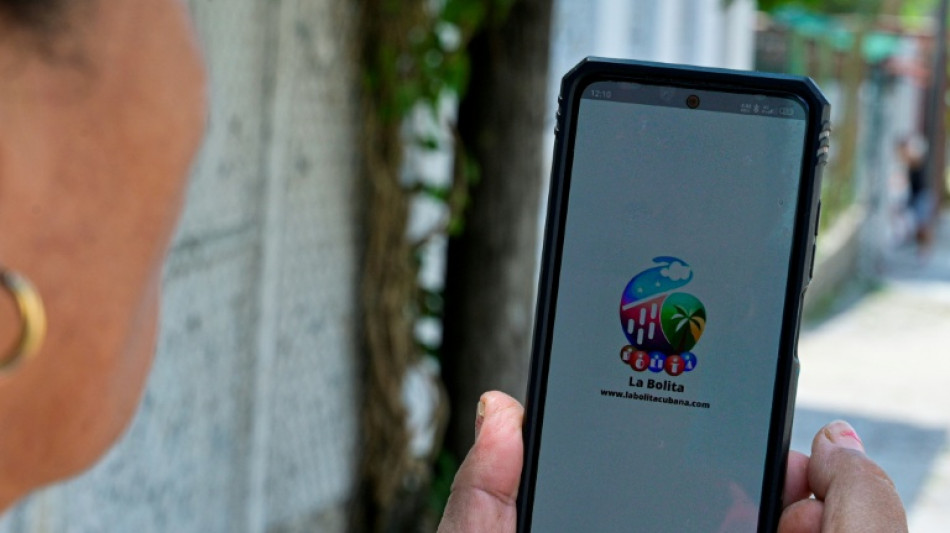
-
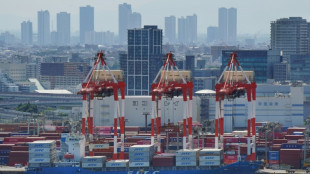 Stocks mostly higher before US-Russia summit
Stocks mostly higher before US-Russia summit
-
Bayern's Bundesliga crown up for grabs after rocky summer

-
 Arsenal face revamped Man Utd as new-look Liverpool open Premier League season
Arsenal face revamped Man Utd as new-look Liverpool open Premier League season
-
South Korea president vows to build 'military trust' with North

-
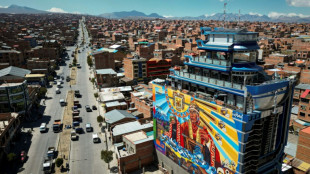 'Never again': Indigenous Bolivians sour on socialism
'Never again': Indigenous Bolivians sour on socialism
-
Indonesia's president touts economy, social welfare drive
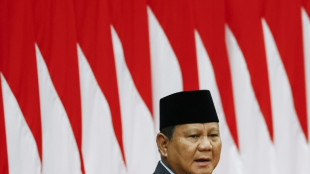
-
 World plastic pollution treaty talks collapse with no deal
World plastic pollution treaty talks collapse with no deal
-
Facing US tariffs, India's Modi vows self-reliance
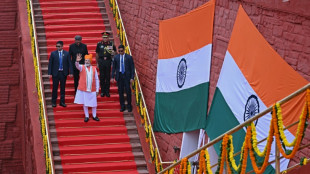
-
 Trump to meet Putin in high-stakes Alaska summit
Trump to meet Putin in high-stakes Alaska summit
-
Indian rescuers scour debris after 60 killed in flood

-
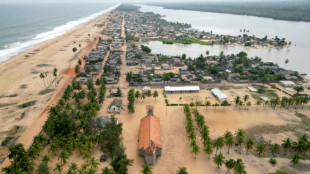 Ivory Coast village reburies relatives as rising sea engulfs cemetery
Ivory Coast village reburies relatives as rising sea engulfs cemetery
-
Stressed UK teens seek influencers' help for exams success

-
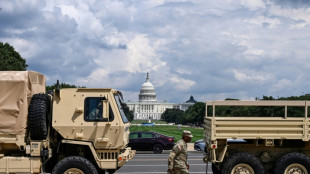 National Guard deploys 800 personnel for DC mission, says Pentagon
National Guard deploys 800 personnel for DC mission, says Pentagon
-
Japan emperor expresses 'deep remorse' 80 years after WWII

-
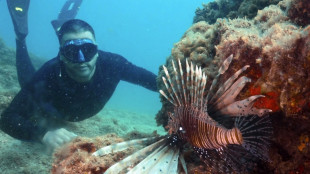 With waters at 32C, Mediterranean tropicalisation shifts into high gear
With waters at 32C, Mediterranean tropicalisation shifts into high gear
-
Historic Swedish church being moved as giant mine casts growing shadow
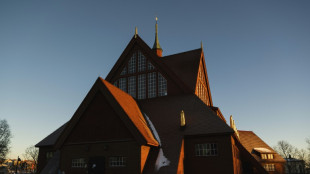
-
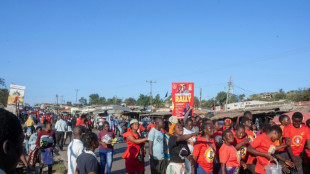 Malawi's restless youth challenged to vote in September polls
Malawi's restless youth challenged to vote in September polls
-
Indonesian roof tilers flex muscles to keep local industry alive
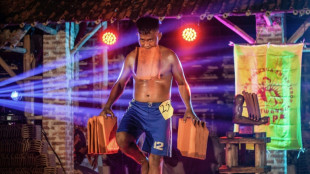
-
 World's first humanoid robot games begin in China
World's first humanoid robot games begin in China
-
Scott Barrett returns to lead All Blacks against Argentina

-
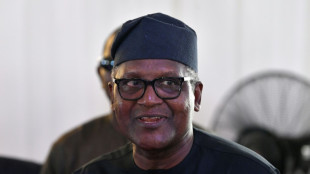 Five things to know about Nigeria's oil sector
Five things to know about Nigeria's oil sector
-
New compromise but still no deal at plastic pollution talks
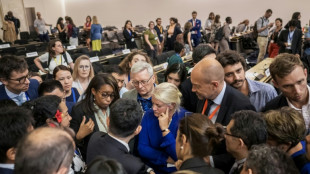
-
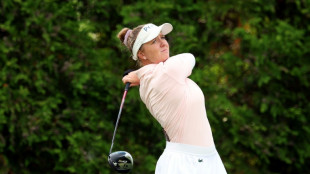 France's Cernousek seizes lead at LPGA Portland Classic
France's Cernousek seizes lead at LPGA Portland Classic
-
Putin-Trump summit: What each side wants
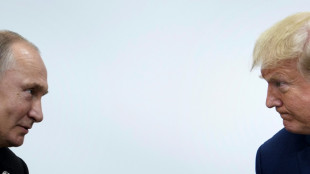
-
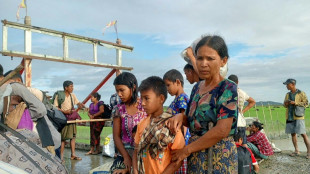 Desperate Myanmar villagers scavenge for food as hunger bites
Desperate Myanmar villagers scavenge for food as hunger bites
-
Qualifier Atmane stuns Rune to set up Sinner semi-final in Cincinnati
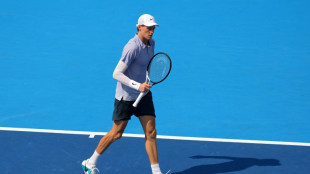
-
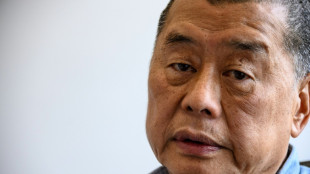 Hong Kong tycoon Jimmy Lai's security trial delayed over health concerns
Hong Kong tycoon Jimmy Lai's security trial delayed over health concerns
-
Asia stocks mixed before US-Russia summit
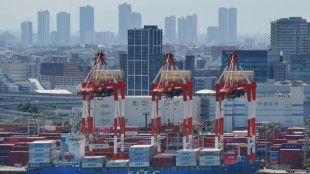
-
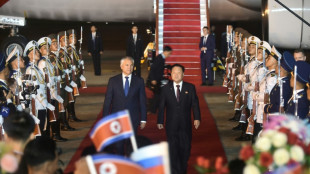 Putin hails North Korean troops as 'heroic' in letter to Kim
Putin hails North Korean troops as 'heroic' in letter to Kim
-
Fleeing the heat, tourists explore Rome at night, underground
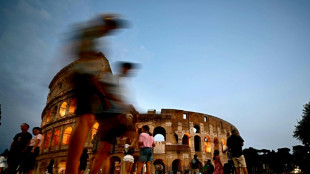
-
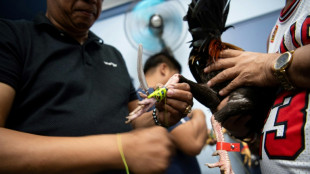 Online cockfighting thrives in Philippines despite ban and murders
Online cockfighting thrives in Philippines despite ban and murders
-
Keeping cool with colours -- Vienna museum paints asphalt to fight heat
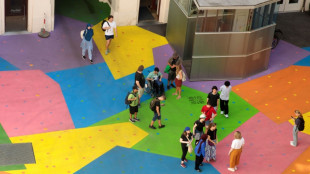
-
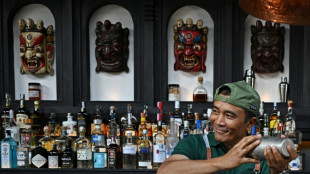 Raising the bar: Nepal's emerging cocktail culture
Raising the bar: Nepal's emerging cocktail culture
-
El Salvador plans 600 mass trials for suspected gang members
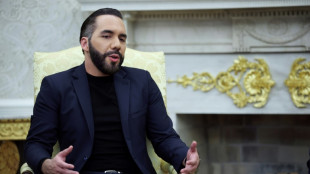
-
 Trump's tariffs drown Brazil's fish industry
Trump's tariffs drown Brazil's fish industry
-
Hong Kong tycoon Jimmy Lai's collusion trial resumes after delay
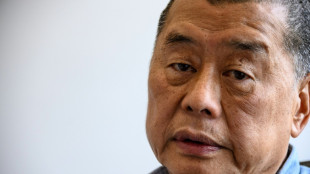
-
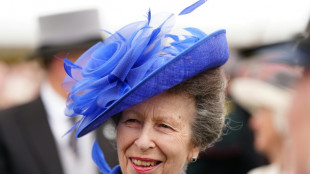 Britain's Princess Anne turns 75 with typically minimal fuss
Britain's Princess Anne turns 75 with typically minimal fuss
-
Japan posts modest growth despite US tariffs
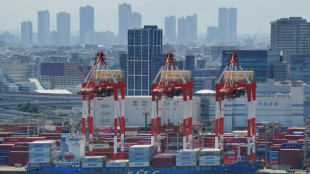
-
 Rugby Championship kicks off amid uncertain future
Rugby Championship kicks off amid uncertain future
-
Israeli far-right minister backs contentious West Bank settlement plan
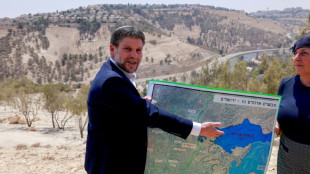
-
 Hot putter carries MacIntyre to three-shot lead at BMW Championship
Hot putter carries MacIntyre to three-shot lead at BMW Championship
-
'Ridiculous': How Washington residents view the new troops in town
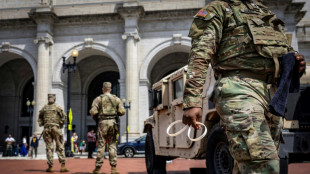
-
 Global plastic pollution treaty talks extended in 'haze' of confusion
Global plastic pollution treaty talks extended in 'haze' of confusion
-
Trump's tariffs have not reduced Panama Canal traffic -- yet
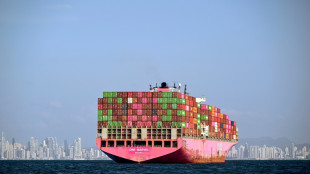
-
 YouTube turns to AI to spot children posing as adults
YouTube turns to AI to spot children posing as adults
-
Sky's the limit for Duplantis ahead of 'super-sick' Tokyo worlds
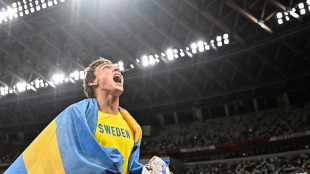
-
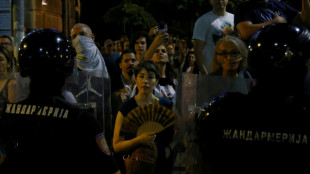 New clashes in Serbia as political crisis escalates
New clashes in Serbia as political crisis escalates
-
Sinner swamps Auger-Aliassime in Cincinnati power display
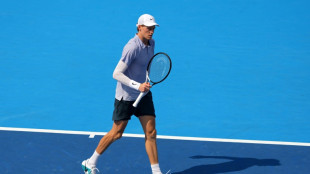
-
 Oil prices rise ahead of US-Russia summit as stocks digest inflation data
Oil prices rise ahead of US-Russia summit as stocks digest inflation data
-
California to change election maps to counter Texas, governor says
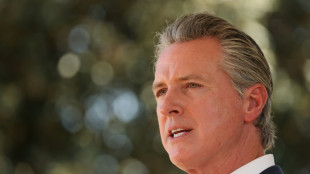

'La bolita,' Cuban lottery offering hope in tough times
Every day, as he has done for 20 years, Carlos makes the rounds collecting bets in central Havana for "la bolita" -- a clandestine national lottery that provides a sliver of hope for Cubans struggling to make ends meet.
Betting has been illegal on the communist island for the past 66 years, but "la bolita" has persisted, and even grown, as Cubans see few other ways out of economic misery.
"People are betting more than ever," said Carlos, who like others interviewed by AFP withheld his real name for fear of getting into trouble.
Carlos, in his 40s, is a "pointer" -- the human interface for Cubans who place bets that start at just a few pesos they hope to multiply with the intervention of Lady Luck.
There are also "collectors" and "bankers" who handle daily bets amounting to millions of Cuban pesos (tens of thousands of dollars) nationally and disburse the winnings neighborhood by neighborhood in a system with no oversight and based entirely on trust.
Carlos points to bets rising in lockstep with a growing hopelessness as Cuba battles its worst economic crisis in 30 years, with shortages of food and medicines, skyrocketing inflation, and daily power outages.
"When you know that your salary isn't enough to make it to the end of the month, the only option left is to bet on luck," he told AFP.
The average salary in Cuba hovers around $42 per month.
As there is no official draw, "la bolita" is decided by twice-daily lottery results from Florida, Georgia or New York.
To find out if they won, Cubans follow the lotteries on the internet, via mobile apps, on Facebook, WhatsApp or on X groups.
- 'Luck can change your life' -
The arrival of mobile internet in Cuba in 2018 injected new life into the lottery that has been played here since the 19th century -- an adaptation of gambling games introduced by Chinese and Italian immigrants.
It is played with numbers from 1 to 100, each with an association such as a horse for 1 or a butterfly for 2.
Players often rely on dreams or experiences to choose their numbers and in the time of Fidel Castro, anyone lucky enough to set eyes on the revolutionary leader -- nicknamed "The Horse" -- would elect the number 1 as part of their grid.
Islander Rogelio, 47, told AFP he won the equivalent of $2,250 in two weeks recently -- a sum equivalent to 61 times his monthly salary as a civil servant.
"Good luck can change your life," he said.
But Ruben, 32, said he had not won anything in a while.
"People no longer say good morning. They ask you which numbers came out," he said.
Carlos concedes there is a problem of people becoming deeply indebted because of "la bolita."
He himself makes a living from a 10 percent cut on each day's takings, but is forced to ply his trade in obscurity.
Castro banned gambling as soon as he took power in 1959, and the country's penal code prescribes a penalty of three years in prison and a fine of 300,000 pesos (about $2,500) for anyone who "performs activities as a banker, collector ... or promoter of illicit games."
It was not always like this.
In the 1940s and 1950s, gambling had its golden age in Cuba, when Havana, with its casinos, betting houses, and game rooms linked to the American mafia, became the most important gaming center in the Caribbean.
Castro's revolution ended the dream of gangsters Meyer Lansky and Lucky Luciano, who had enjoyed close ties with dictator Fulgencio Batista, of building a chain of hotel-casinos on Havana's Malecon waterfront, American journalist TAJ English wrote in his 2007 bestseller "Havana Nocturne."
Las Vegas took over instead, and became one of the largest gaming centers in the world.
Q.Bulbul--SF-PST
